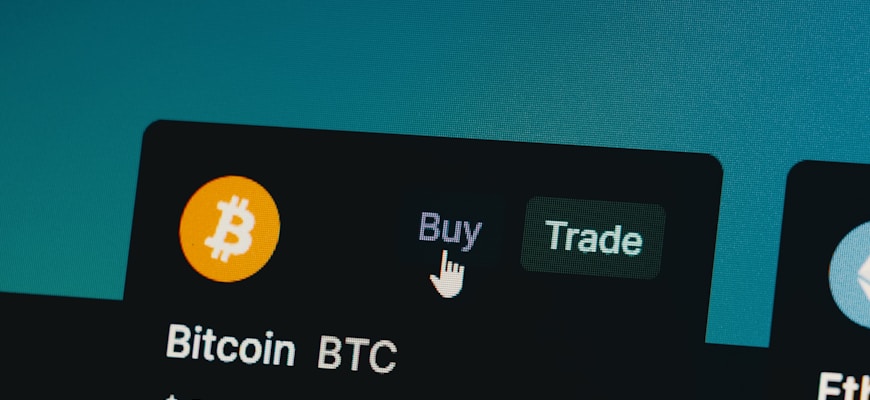Blockchain-based Crowdfunding Platforms

- Introduction to Blockchain Technology
- The Rise of Crowdfunding Platforms
- Benefits of Blockchain in Crowdfunding
- Challenges and Limitations of Blockchain Crowdfunding
- Regulatory Landscape for Blockchain Crowdfunding
- Future Trends in Blockchain-based Crowdfunding Platforms
Introduction to Blockchain Technology
Blockchain technology is revolutionizing the way crowdfunding platforms operate. It is a decentralized and secure way to record transactions across a network of computers. This technology allows for transparency, immutability, and increased trust among users participating in crowdfunding campaigns.
One of the key features of blockchain technology is its ability to create smart contracts. **Smart contracts** are self-executing contracts where the terms of the agreement are directly written into the code. This automated process eliminates the need for intermediaries and reduces the risk of fraud. Additionally, blockchain technology ensures that all transactions are recorded on a public ledger, providing a transparent and auditable record of all activities.
Blockchain-based crowdfunding platforms leverage this technology to provide a more efficient and secure way for individuals and businesses to raise funds. Through the use of cryptocurrencies, such as **Bitcoin** or **Ethereum**, users can participate in crowdfunding campaigns from anywhere in the world. This global reach opens up new opportunities for both project creators and investors.
Moreover, blockchain technology enables crowdfunding platforms to offer tokenization of assets. This means that assets, such as real estate or art, can be divided into digital tokens and sold to investors. These tokens represent ownership of a portion of the asset and can be traded on secondary markets. This innovation provides liquidity to traditionally illiquid assets and allows for greater diversification in investment portfolios.
In conclusion, blockchain technology has the potential to revolutionize the crowdfunding industry by providing a secure, transparent, and efficient way to raise funds. By leveraging smart contracts, cryptocurrencies, and asset tokenization, blockchain-based crowdfunding platforms offer new opportunities for both project creators and investors. This technology is reshaping the way we approach fundraising and investment, paving the way for a more inclusive and accessible financial ecosystem.
The Rise of Crowdfunding Platforms
The rise of crowdfunding platforms has been a game-changer in the way projects and ideas are funded. These platforms leverage the power of the internet to connect entrepreneurs with a global audience of investors and backers. Traditional methods of fundraising often come with barriers such as geographical limitations and high fees, but crowdfunding platforms have eliminated many of these obstacles.
With the advent of blockchain technology, crowdfunding platforms have become even more efficient and transparent. Blockchain-based crowdfunding platforms use smart contracts to automate the process of fundraising, making it faster and more secure. These platforms also offer increased transparency by recording all transactions on the blockchain, making it easier for backers to track how their funds are being used.
One of the key advantages of blockchain-based crowdfunding platforms is the elimination of intermediaries. By cutting out middlemen, these platforms reduce costs and provide entrepreneurs with direct access to funding. This direct peer-to-peer interaction also fosters a sense of community and trust among investors and project creators.
Benefits of Blockchain in Crowdfunding
Blockchain technology has revolutionized the way crowdfunding platforms operate, offering numerous benefits to both project creators and backers. Here are some of the key advantages of utilizing blockchain in crowdfunding:
- Transparency: One of the main benefits of blockchain in crowdfunding is the transparency it provides. All transactions are recorded on a public ledger, allowing backers to track how their funds are being used.
- Security: Blockchain offers a high level of security due to its decentralized nature. This reduces the risk of fraud and ensures that funds are handled safely.
- Lower fees: By eliminating intermediaries, blockchain-based crowdfunding platforms can significantly reduce transaction fees, making it more cost-effective for both creators and backers.
- Global reach: Blockchain technology allows for crowdfunding campaigns to reach a global audience, breaking down geographical barriers and enabling projects to attract backers from anywhere in the world.
- Smart contracts: Smart contracts automate the process of crowdfunding, ensuring that funds are released to the project creator only when certain conditions are met. This adds an extra layer of security and trust to the crowdfunding process.
Overall, the use of blockchain in crowdfunding platforms offers a more efficient, secure, and transparent way of raising funds for projects. It has the potential to revolutionize the crowdfunding industry and empower creators to bring their ideas to life with the support of a global community.
Challenges and Limitations of Blockchain Crowdfunding
One of the challenges of using blockchain technology for crowdfunding is the issue of scalability. Due to the decentralized nature of blockchain networks, transactions can take longer to process compared to traditional centralized platforms. This can lead to delays in funding projects, which may deter potential backers from participating in crowdfunding campaigns.
Another limitation of blockchain crowdfunding is the lack of regulation and oversight. Without clear guidelines in place, there is a risk of fraudulent activities and scams taking place on these platforms. Investors may be hesitant to contribute to projects if they are unsure about the legitimacy of the fundraisers.
Additionally, the high volatility of cryptocurrencies can pose a challenge for blockchain crowdfunding. The value of digital assets can fluctuate rapidly, affecting the amount of funding received by project creators. This uncertainty may make backers hesitant to invest in projects, especially if they are concerned about potential losses.
Moreover, the technical complexity of blockchain technology can be a barrier for some users. Not everyone is familiar with how to use digital wallets or navigate decentralized platforms. This can limit the number of people who are willing or able to participate in blockchain crowdfunding campaigns.
In conclusion, while blockchain-based crowdfunding platforms offer many benefits such as transparency and security, there are also challenges and limitations that need to be addressed. Scalability issues, lack of regulation, cryptocurrency volatility, and technical complexity are all factors that can impact the success of crowdfunding campaigns on blockchain networks. By overcoming these obstacles, the potential for blockchain crowdfunding to revolutionize the way projects are funded remains promising.
Regulatory Landscape for Blockchain Crowdfunding
When it comes to blockchain-based crowdfunding platforms, it is essential to consider the regulatory landscape surrounding this innovative technology. Governments around the world are still in the process of developing and implementing regulations specific to blockchain and cryptocurrency activities. This creates a level of uncertainty for both platform operators and investors.
Regulatory bodies are concerned with issues such as investor protection, anti-money laundering (AML) compliance, and the prevention of fraud. In some jurisdictions, crowdfunding platforms are required to register with financial regulatory authorities and comply with strict reporting and disclosure requirements. Failure to adhere to these regulations can result in fines, penalties, or even the shutdown of the platform.
One of the main challenges facing blockchain crowdfunding platforms is the lack of uniformity in regulations across different countries. What is considered legal and compliant in one jurisdiction may be prohibited or heavily regulated in another. This can make it difficult for platforms to operate on a global scale and for investors to participate in crowdfunding campaigns outside of their own country.
Future Trends in Blockchain-based Crowdfunding Platforms
The future of blockchain-based crowdfunding platforms looks promising with the continuous advancements in technology. These platforms are expected to revolutionize the way fundraising is done by providing a more transparent, secure, and efficient environment for both investors and project creators. Some of the key trends that we can expect to see in the future include:
- Increased Adoption: As more people become aware of the benefits of blockchain technology, we can expect to see a significant increase in the adoption of blockchain-based crowdfunding platforms. This will lead to more projects being funded through these platforms, creating a more diverse and accessible funding ecosystem.
- Smart Contract Integration: Smart contracts are self-executing contracts with the terms of the agreement between buyer and seller being directly written into lines of code. By integrating smart contracts into crowdfunding platforms, we can automate the process of fundraising, ensuring that funds are released only when certain conditions are met.
- Tokenization of Assets: Tokenization is the process of representing ownership of real-world assets on a blockchain. In the future, we can expect to see more crowdfunding platforms offering tokenized assets, allowing investors to own fractions of assets such as real estate, art, or commodities.
- Decentralized Governance: Decentralized governance models, such as decentralized autonomous organizations (DAOs), are gaining popularity in the blockchain space. These models allow stakeholders to vote on important decisions regarding the platform, creating a more democratic and transparent funding environment.
- Regulatory Compliance: As blockchain technology continues to evolve, we can expect to see more regulatory clarity around crowdfunding platforms. This will help to mitigate risks for both investors and project creators, making the crowdfunding process more secure and trustworthy.
In conclusion, the future of blockchain-based crowdfunding platforms is bright, with exciting developments on the horizon. By embracing these trends, we can expect to see a more inclusive, efficient, and transparent crowdfunding ecosystem that benefits everyone involved.



